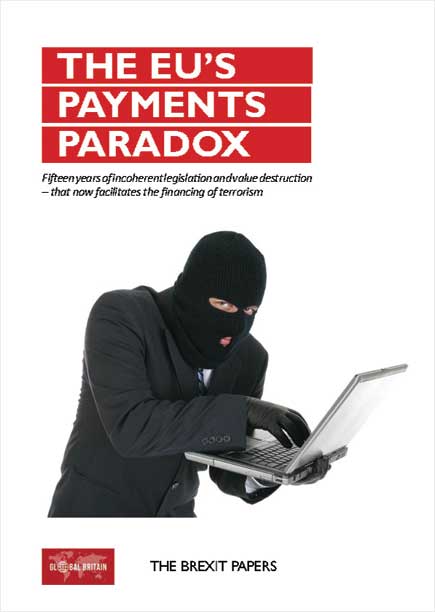The EU has legislated extensively to harmonise payments in euro, enacting legislation applying to the whole EU and all EU currencies, and thus representing a significant cost to the UK for the purposes that have little to do with us here.
The legislation has removed any economic basis for investing in the payments business, whilst supposedly attracting new entrants and fostering new services, who will earn their returns from where?
This would all be funny if these interventions did not add up to an unmitigated disaster and misallocation of resources, and if the UK had not had to invest significantly in processes that have as their main objective the shoring up of the euro, which we are not part of.
Not only that, but the legislation has enabled terrorists – if they have the most basic permit to be in an EU Member State – to get a bank account and transmit money in Euro around the EU without needing to put their own or that of the beneficiary in the payment, thus bypassing controls designed (at huge cost) to counter the financing of terrorism and to combat money laundering.

